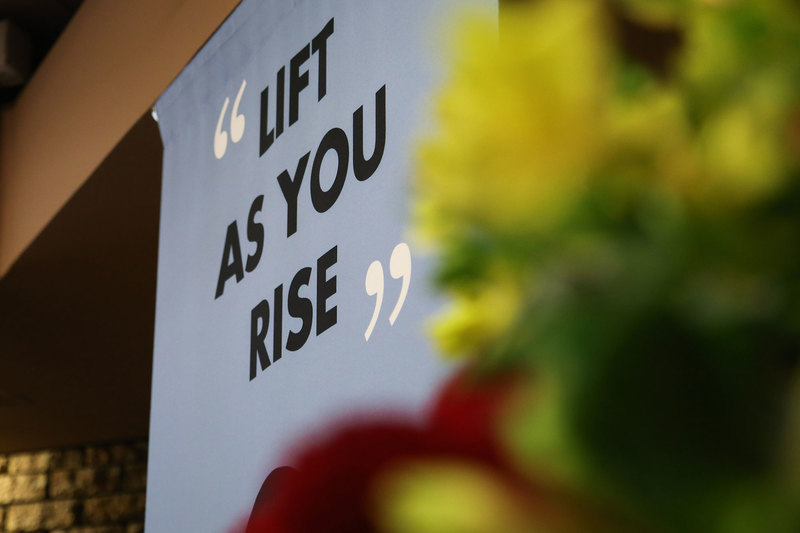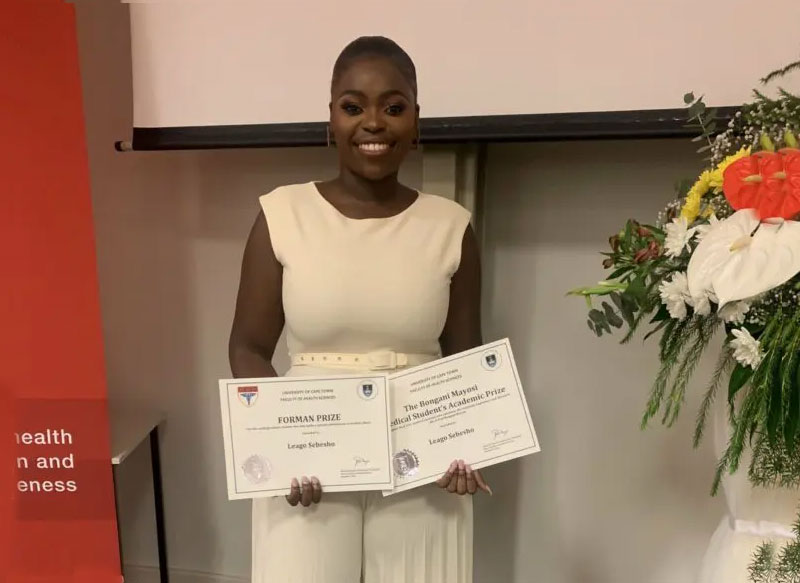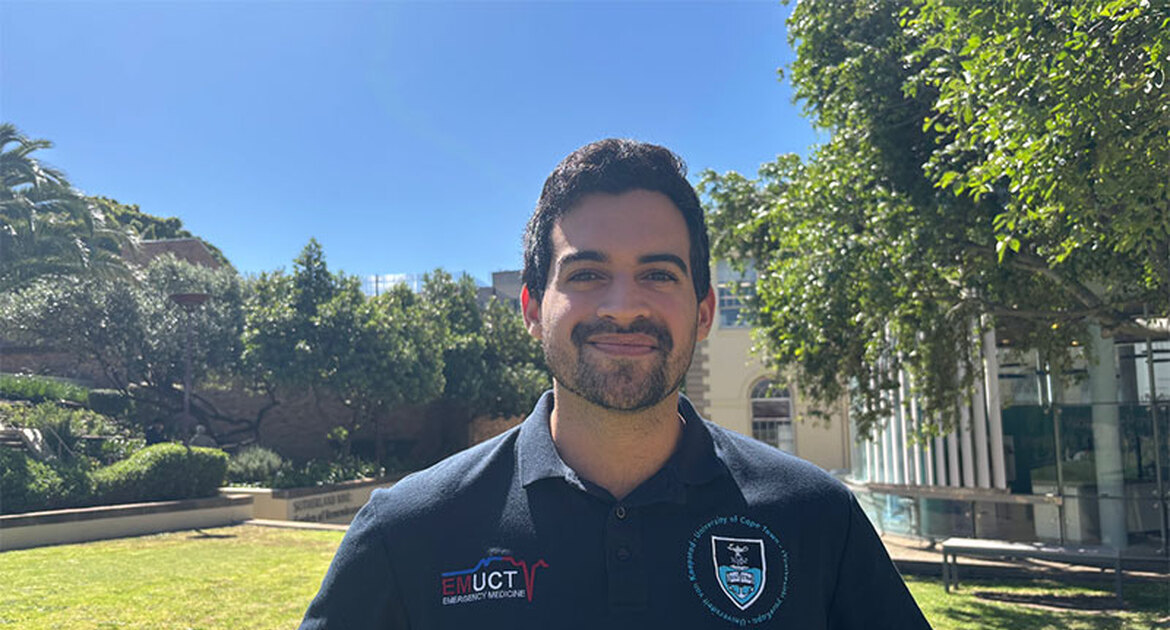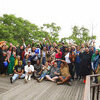Leago Sebesho awarded Bongani Mayosi Medical Students Academic Prize
06 May 2022 | Story Biénne Huisman. Read time 6 min.
Dr Leago Sebesho was awarded the University of Cape Town’s (UCT) Bongani Mayosi Leadership Prize for the medical student most representative of the late dean’s academic excellence and altruistic values.
At Chris Hani Baragwanath Academic Hospital in Soweto – Africa’s largest healthcare facility with around 3 400 beds and 6 760 staff – newly graduated Dr Leago Sebesho is learning on her feet, in gruelling shifts that sometimes last up to 28 hours.
From an early age, Sebesho wanted to become a doctor like her mother, who is a medical officer in family medicine. She says a medical officer is like a ‘GP’ who works in the public sector.
Originally from Atteridgeville in Pretoria, Sebesho says she worked relentlessly while attending Marist Brothers Linmeyer High School in the south of Johannesburg, to get good grades so that she could get into medical school.
Now aged 25, Sebesho graduated with her Bachelor of Medicine and Bachelor of Surgery (MBChB) from the University of Cape Town (UCT) with distinction in March. She is now five months into an internship at Johannesburg’s Chris Hani Baragwanath Academic Hospital, known colloquially as “Bara”. According to an overview before Parliament, Baragwanath serves an immediate population of 1.5 million people in Soweto, with approximately 70% of all admissions being emergencies, including around 160 gunshot victims per month.

This is where Sebesho is cutting her teeth as a doctor – at Bara’s bustling trauma unit where trolley after trolley of hurt people are wheeled in as sirens wail, heralding even more arrivals. She recounts a sense of camaraderie amongst Bara’s staff, especially within their group of over 100 interns. “For example,” she says, “the other day there was no electricity. We were holding lights for each other while people were doing procedures.”
In an interview with Spotlight, she recounts the everyday realities facing healthcare staff at the sprawling hospital.
“It is a very, very busy unit. It’s an adrenaline rush,” she says. “We see such an array of pathologies on a daily basis. We see gunshots all over the body, car accidents, pedestrian accidents, a lot of gender-based violence, a lot of mob assaults. We see bites, we see people who cut themselves, we see a lot of falls.
“It is an adrenaline rush because as an intern, you’re often the first point of call. So when the paramedics bring patients in, you’re the person they speak to. And you have to decide whether the patients go into resus [the resuscitation area], which is for more life-threatening complications, or what we call ‘the pit’ at Bara, which is for people who aren’t as severely complicated right then.
“Interns do get opportunities to go into the resus area to contribute to the team handling those life-threatening cases as well. We get to be very hands-on, doing sutures, putting in drains, we get to do various kinds of procedures, like administering different kinds of antidotes. We are learning to decide what’s complicated, what’s urgent versus what can wait. There’s a lot of learning in the trauma units. You have to be very hands-on because of the kind of things you see.”
She adds that finding maggots in patients’ wounds still comes as a shock. “Basically, it’s fly larvae. You get maggots when the wound is rotten, right? The two or three cases that I’ve seen in the past month have been people who did not necessarily take care of their wounds, so the wounds just rot. And often it’s people who are without homes, or it’s people who are neglected at home or people who didn’t realise the magnitude of how injured they were. For example, I had a guy with a wound that was quite septic and he had maggots. And he just didn’t open his dressing that we’d put on in the hospital weeks before. He just didn’t open it. So ja, stuff like that.”
‘It takes three things’
Sebesho is learning to brace herself for tough moments on the job. “It takes three things,” she says. “Mental preparation before, then mental agility and stability when you’re within it, but also good coping mechanisms for after. I mentally prepare myself by reading based on the common things that I see – this is how we treat A, B, C, D. So that I’m prepared and don’t feel overwhelmed during the call. And then mental agility, you have to be focused on why you’re there. I will never forget [the] advice that one of the sisters gave me. She said to me, you need to work at your own pace in this place, not at the pace of how things happen. Like, sometimes you’ll be on call and you’re working so hard and you’re pushing patients, but it’s just packed. And you just feel like you haven’t seen enough people. But that’s when you need to take things at your own pace – your own best pace.”
What are other challenges facing young doctors training in South Africa?
“I think it’s the hours,” says Sebesho. “It’s strenuous having to work those long hours on call, to think critically and be your best when you’re exhausted. I think that’s a huge challenge and a big adjustment. I think sometimes resources are a challenge depending on what hospital you work in. Sometimes you have to push patients yourself. You will have to run across the hospital to look for things because they’re not available in the wards that you’re working in. I think for some people, it’s senior support. But that’s not my own experience at Bara at all.”
In addition, sometimes patients can be rude, she says. “Some of them are intoxicated, some of them are aggressive. You have to remind yourself who you are when you approach those kinds of patients. Obviously, you draw very strict boundaries, not to be disrespected, but at the same time, you constantly have to reflect and be like, I need to be the best person that I can be. I need to be kind, full of love, putting people first. Despite them not reciprocating that same energy.”
For Sebesho, knowing that the majority of trauma admissions at Bara stem from poverty and socio-economic circumstances brings sadness.
“You see a lot of things that are traumatic to the eye, but you get used to it,” she says. “You will see a lot of things that are quite emotional like homeless people being robbed and women being beaten by their partners, kids who get burnt. And it’s all socio-economic issues that contribute to these things. You know, people living in shacks who are using paraffin stoves, people cooking on fires, people using resources that are dangerous.
“Because people are poor, they’ll have kids who are malnourished because they don’t have money to buy nutritious food and so their children eat pap three times a day, instead of having vegetables and fruit and nuts and all these nutritious things.
“I always say that a hospital is the doorstep of everything that is wrong in a society. So every single thing that is wrong in a society, you will see at the doorstep of a hospital. Here at Bara, you don’t get to be naïve about what people are struggling with, because you see it first-hand.”
“People having to travel late at night with public transport, and then they get mugged and beaten up. We have a huge alcohol problem in South Africa. So we’ve got a lot of accidents and trauma because of the alcohol. People are more violent and aggressive when they’re drunk. I can tell you the difference between month-end and non-month-end. I can tell you the difference between long weekends and non-long weekends. For example, Easter weekend was one of the busiest weekends at trauma because people were off and drinking.
“These are systemic challenges. People who are sick when they shouldn’t be sick. So it’s things like that that can overwhelm you and can demotivate you sometimes. I always say that a hospital is the doorstep of everything that is wrong in a society. So every single thing that is wrong in a society, you will see at the doorstep of a hospital. Here at Bara, you don’t get to be naïve about what people are struggling with, because you see it first-hand.”
Contribution to student affairs
At her graduation ceremony, Sebesho was awarded Health Sciences Faculty at UCT’s Forman Prize for a scholar who made a special contribution to student affairs. Having started her studies in 2016, she was part of the first medical graduation cohort who participated in the 2016 #FeesMustFall protests.
At university, Sebesho served on the student parliament and as a class representative. “Students knew they could always call me if there were financial exclusions happening, if people had family crises, if people needed advice on things. I always knew the channels to get them their help,” she says.
UCT classmates also elected Sebesho winner of the Bongani Mayosi Leadership Prize, for the medical student most representative of the late dean’s academic excellence and altruistic values.
Reflecting on her decision to become a doctor, she says, “I think, as a doctor, you have the privilege of holding vulnerable people in your hands. Growing up, I always knew my mum was the first point of call for so many people. She always knew what things people were struggling with, whether it be physical health or mental health. And she always showed up for them. I admired that and saw myself doing the same thing.
“So, for most of my life, I wanted to be like her. But when I got to high school, I realised that I actually wanted that based on my own interests, too. I love science, I love people. And I felt that being a doctor is a good mix between the two. So because I was determined to become a doctor from an early age, I always worked really hard knowing that I needed certain marks to get into medical school. I also knew that outside of academics you also have to be a well-rounded individual – things like leadership, sport, cultural activities. So I did everything…”
She chose UCT as she wanted the “independence of living away from home while still practising in the health system of South Africa. I knew the training in South Africa would prepare me to be a good doctor.”
On medical school admissions, Sebesho says, “I do think that the demographics have changed a lot since 20 years ago. They’ve changed the demographics to try and mimic the demographics of the country, in proportionality.”
She adds that despite changed admission criteria at South African universities, some students simply cannot afford six years at medical school. “The reality is a lot of people end up not going to medical school because it’ll be one of the most expensive degrees in the university. And then, medical degrees are not well-funded by the private sector because there’s no benefit to the companies. For example, with accounting and actuarial sciences, you can sign a contract with a company. And when you’re done with your degree, you go and work for them. Whereas with us, the private sector has no buy-in to fund us because they know that we have to work for government for three years after graduating. So, if it’s not municipalities or departments of education or health bursaries, there’s not much funding, which means that students struggle a lot with finances and financial exclusions, because it’s expensive and res is expensive.”
… despite changed admission criteria at South African universities, some students simply cannot afford six years at medical school. “The reality is a lot of people end up not going to medical school because it’ll be one of the most expensive degrees in the university.
Sebesho’s own studies were covered by UCT’s Klaus-Jürgen Bathe Leadership Scholarship Programme aimed at “producing graduates with outstanding leadership qualities and a strong sense of social justice”, courtesy of a donation by mechanical engineering Professor Klaus-Jürgen Bathe of the Massachusetts Institute of Technology (MIT) – and further financial assistance from close family and friends.
Going forward, she intends to complete her two-year mandatory internship at different units within Bara, followed by another year of compulsory community service, after which she might specialise as an internist or in public health.
The Department of Health’s three-year internship and community service programme (ICSP) for medical graduates includes two internship years at a Health Professions Council of South Africa (HPCSA) accredited public hospital, followed by a Community Service Policy (CSP) year at an under-serviced health facility, often in a rural setting. On its website, the Department of Health explains: “These programmes are designed to prepare health professionals for independent practice as well as to provide the South African health system with resources for health in communities and facilities that need it the most.”
Faculty of Health Sciences News
























